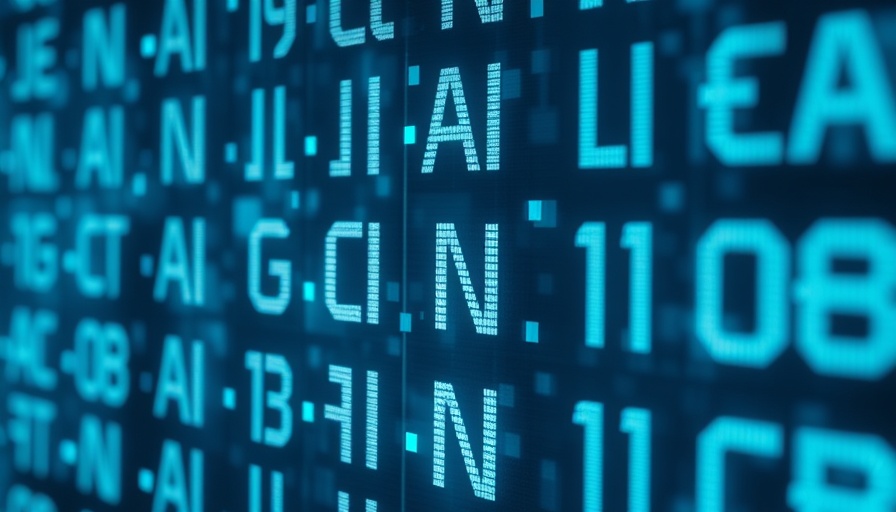
The Landmark Case: Anthropic's Legal Struggle
Anthropic's settlement in a highly publicized copyright lawsuit has sent shockwaves through the AI community, revealing the complex relationship between artificial intelligence and intellectual property rights. The company was facing a potential $1 trillion in damages from authors Andrea Bartz, Charles Graeber, and Kirk Wallace Johnson, who contended their works were illegally used to train AI models. Interestingly, a previous ruling in this ongoing case determined that while Anthropic's use could qualify as 'fair use', their method of acquiring certain books from 'shadow libraries' constitutes piracy.
This precarious legal situation underscored the need for clearer guidelines on copyright in the age of AI. With nearly seven million works in Anthropic's library, the stakes were immensely high—and many authors still await clarity on their eligibility to participate in the lawsuit.
Understanding 'Fair Use' in AI Training
The tension between AI development and copyright law raises critical questions about what constitutes 'fair use.' In the tech-savvy world, knowledge workers grapple with understanding how the rules apply to them. This case highlights the nuances of copyright and reinforces the importance of transparency in AI training methodologies.
As the legal landscape evolves alongside rapid advancements in AI technology, developers and organizations must consider the ethical implications of their practices, prompting a reevaluation of how existing laws apply. This case asserts that while AI can leverage vast amounts of data, how that data is sourced will significantly impact its legitimacy.
Implications for Authors and Creators
The fallout from this suit will significantly affect authors who feel threatened by potentially unethical practices of AI. With the Authors Guild indicating participation eligibility for those authors affected, many writers may soon voice their opinions on the outcome of the settlement.
"The anticipation around the settlement terms could lead to a collective voice among authors and content creators, potentially influencing future regulations on AI content usage," posits legal expert James Grimmelmann. This community sentiment will not only shape the future of copyright disputes but also determine how industries adapt to AI technologies responsibly.
Looking Ahead: The Future of AI and Copyright
The settlement agreement, expected to finalize soon, raises questions about the future intersection of AI and copyright law. As evident from Anthropic’s experience, companies must be proactive in adapting to emerging regulations, ensuring they navigate the complex legal landscape. They also need to understand how their practices resonate with consumers and creators alike.
As AI technology proliferates, the implications for copyright may redefine how industries operate, compelling stakeholders to find a balanced approach that respects creators' rights while fostering innovation.
As discussions surrounding the settlement continue, both industry insiders and authors will keep a close eye on the final terms, which could serve as a precedent for how AI companies acquire and utilize content moving forward.
 Add Row
Add Row  Add
Add 




Write A Comment